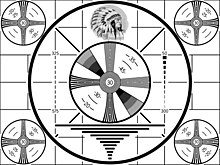Wikipedia:Wikipedia Signpost/2014-01-08/WikiProject report
Appearance
WikiProject report
Jumping into the television universe





This week, we spent some time with WikiProject Television. The project began in September 2003 and grew to include nearly 78,000 pages, including 290 pieces of Featured material and almost 1,900 Good Articles. We interviewed Gen. Quon and TonyTheTiger.
- What motivated you to join WikiProject Television? Have you focused on a particular genre or on a specific television series? Do you contribute to articles about the technical aspects of television or the history of the medium?
- Gen. Quon: When I started to actively edit Wikipedia, I found myself largely editing articles about my favorite bands and TV shows. For almost four years, that trend has continued, and most of my recent edits are exclusively towards TV-related articles. I first got involved via The X-Files project, where I helped several other editors improve and promote articles to good and featured status. I'm happy to say that since I've started, we as a team managed to promote every single episode of the series to good article or beyond! I've also reviewed a few articles, although in my opinion, reviewing isn't my strongest point (but I help out when needed). I've really focused my attention on three series: The X-Files, The Office, and Adventure Time.
- TonyTheTiger: I don't really think of myself as a member of the project because my most significant contributions are things where I don't really see eye-to-eye with many project members. I have done a lot of work on templates for TV and film awards as well as media franchises. I am also active in identifying important episodes and seasons for project to do lists. I mostly review and edit American drama shows. I am not a technical writer. Most of my time on the project talk page is spent fighting about whether historical critically acclaimed television series should have season articles split from series list articles and whether award templates should be partitioned. I have become more active in the project since I began writing television scripts a little more than 3 years ago.
- Have you played a role in promoting any of the project's nearly 300 pieces of Featured content or the over 1,800 Good Articles? Are there any extremely active editors or subprojects that have been contributing to this wealth of Featured and Good material?
- TonyTheTiger: I have reviewed a lot of WP:GACs for the project. Many of these have been promoted (Grey's Anatomy, 24, Sesame Street, Adrian Monk, "Commissions and Fees", Chris Sheridan (writer) and Great Reality TV Swindle) and many have not (Boardwalk Empire, Breaking Bad, Lost, Bewitched, Jeopardy!, "Pilot" (Lost), Mad Men (season 1), and Desperate Housewives (season 2)). I have created some significant content, the most notable of which are GAs for the first Primetime Emmy Awarded webisode, "Chapter 1" (House of Cards), and "Hill Street Station" (only TV episode to sweep Best Director Primetime Emmy Award and DGA as well as Best Writer Primetime Emmy Award and WGA). Other GAs include "A House Divided" (Dallas), "Hearts and Souls", "Pilot" (The Cosby Show), "Pilot" (Devious Maids), Victoria's Secret Fashion Show, "Zou Bisou Bisou", Carly Foulkes, "Million Dollar Challenge" (poker), Red Tail Reborn, and Rose Catherine Pinkney. I should also note that I have created articles for four fictional characters that were nominated for both the 65th Primetime Emmy Awards and the 71st Golden Globe Awards. However, only Selina Meyer is a current GA; Frank Underwood (House of Cards) is a current GAC nominees, and two are yet to be nominated (Claire Underwood and Olivia Pope). Pope may be nominated soon. I also think House of Cards (season 2) may find its way to GAC when reviews are available to fill in the plot and critical commentary. I hope to achieve my first featured article for this project in 2014. Gen. Quon is among the most active editors in the project.
- Gen. Quon: Most if not all of my edits have been towards page that I think could either be promoted to good or featured article status, or towards articles that I hope to actively promote. Since I've started working on Wikipedia, I have promoted over 225 articles to good article status (most of which are TV articles), and I have helped promote 8 articles to featured article status. I have also contributed to a featured list, and several good article topics. People who are extremely active in the project (and subprojects) include Grapple X (The X-Files, Twin Peaks), Glimmer721 (Doctor Who, The X-Files), Ruby2010 (Fringe, The X-Files), and NoD'ohnuts (The Office) among many others. (I'm sure I missed a few!)
- Is it difficult to find images for television articles? What are the limitations for using non-free images in articles about television programs? What are alternative ways of illustrating articles without using screen captures from the television program?
- TonyTheTiger: Television articles are difficult to find free images for. We have images for many actors and can often use them to give a somewhat representative illustration. Also, in some cases promotional posters are suitable illustration.
- Gen. Quon: I distinctly remember going through 'wars' about whether or not certain screenshots from episodes fulfilled Wikipedia's fair use rationales. Screenshots from some series are easier to justify (The X-Files, with its special effects, jumps to mind) whereas others aren't (Most screenshots from The Office can be explained in words alone). To 'fix' this issue, we usually use free images to describe important parts of the articles. For instance, Grapple X used an image of foie gras to illustrate a plot point in the "Squeeze" (The X-Files) featured article. As TonyTheTiger mentioned, we also make heavy use of free images of actors, writers, directors, etc.
- Have you had any contact with the dozens of regional, genre, or series specific projects and task forces under the scope of WikiProject Television? Do the subprojects keep to themselves or do they cooperate? Are there any untapped opportunities to collaborate that should be explored?
- Gen. Quon: I actively participate in both The X-Files and The Office projects and task forces. I've noticed that, while some editors in the different task forces may not have an interest in another area, they will be willing to at least help out if they can. For instance, I recently nominated List of Adventure Time episodes for featured list, and several editors who are not active Adventure Time editors (but are TV editors) helped me out by pointing out suggestions.
- Are some genres, time periods, or geographic regions better covered than others by Wikipedia's television articles? What can be done to improve neglected television topics?
- TonyTheTiger: I monitor the most important American Television Episodes for creation and Seasons for creation. Although I continue to be surprised that season articles do not exist for "Downton Abbey" and "Girls", the vast majority of new and expanded content is needed for shows over 20 years old. I think I have identified the most important content in these areas in need of attention. There is also contentious discussion on whether many other existant season articles should exist when they are redundant with series episode list articles. Expanding important season articles so that they contain content that is not redundant with series episode list articles is difficult for many older series, but if one has the patience and diligence to find sources for this content it would help a much neglected area of the project, IMO.
- Gen. Quon: I agree with TonyTheTiger; I've noticed that newer shows often receive much more attention that older shows, although I think this makes sense since people will inevitably be drawn towards shows that are currently airing and therefore actively entertaining them.
Next week, we'll look for solutions to social problems. Until then, find your way through the archive.



Discuss this story